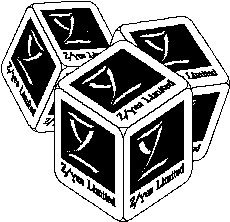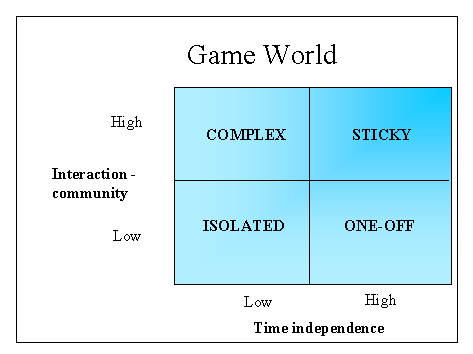Internet Games Fail To Score
Sunday, 01 October 2000
Z/Yen Limited, the innovative Risk/Reward management firm, has released a new study, Online Financial Trading Simulations Report, that exposes how poorly executed and unimaginative most corporate games are. Internet games designed to increase the ‘stickiness’ of corporate websites are proliferating. These games range from shadow investment games to fantasy football leagues, trivia prizes or electronic one-armed bandits. Such games are often ‘tacked on’ to an existing corporate website in an attempt to increase time on site or to encourage people to return and some websites specialise in selling ‘sticky’ or ‘participatory’ content packages (e.g. www.myval.com). Z/Yen’s study focused on financial or prize-awarding games during the year 2000.
Z/Yen were disappointed with the quality of most of the games they examined. The study examines over 150 on-line investment and trading games, assessing their potential as a tool for generating web site popularity. Z/Yen were particularly interested in finding out what benefit investment games could add to web sites.
Michael Mainelli, Director of Z/Yen says " These games soak up large amounts of time and investment, yet are often poorly thought out and executed. I may be showing my age, but where are the compelling games - where are the Space Invaders and PacPeople (sic) of the Internet?"
Research Consultant Mary O’Callaghan adds "In a busy marketplace, with a wide variety in game style, playability and above all creative opportunity, few games stand out from the crowd and very few seem to try and entertain."
Companies searching for ‘stickiness’ may be losing their way. A significant minority of Americans (almost 10%) with Internet access no longer plan to surf. Yet, having tried many other approaches, e.g. graphics, loyalty schemes, dynamic content, ASP services and referrals, companies could make more of gaming to increase ‘stickiness’.
Based on their research and experience, Z/Yen have categorised the gaming world in 4 ways, considering interactivity and time independence. They summarise these categories as:
- Complex (high interaction, time dependent) - typically strategy games that build up strong communities but depend on quick responses for their success and gameplay, e.g., Ultima;
- Isolated (low interaction, time dependent) - typified by action type "shoot’em’up" games that require immediate response, but have little sense of community, e.g., Jamba’s Chain Reactors;
- One-Off (low interaction, time independent) - gambling, trivia, and ‘Trite Tracker’ games, with little sense of community but independent of user response times, e.g., Final Bell, Global Strategist;
- Sticky (high interaction, time independent) - games which develop strong communities and high interactivity, resulting in long term relationships with users, including web trading games such as prediction markets or Studio Boss.

Michael Mainelli goes on to say "Financial games were some of the least inviting and engaging. Too many were what we call ‘Trite Trackers’, games which are based on data streams from live exchanges, but do little with the information to make it interesting. Typically these games function as fairly basic paper-and-pen-style snapshots of a chance portfolio. There is little point in many people playing. If everyone buys BT, but BT drops in real-life, everyone’s gameplay is ignored. It’s hardly surprising that our research found sites using these games recording 50,000 extra hits in their first week, but less than 5,000 extra just weeks later as people realised how boring and static they are."
Among the many poorly thought out and executed games there were a few with significant potential for building genuine communities of loyal web users, such as Studio Boss, Sports Trading, or the Bollywood Stock Exchange.
In an increasingly competitive internet, games can make sites much more ‘sticky’, but companies cannot just tack these games on randomly. The entire marketing campaign, as well as the website, needs to incorporate and reinforce the game. Companies seeking to capitalise on internet games have two choices, to develop their own game in-house, or to customise an existing game template. Z/Yen were surprised that among the very large corporate sites, none had built a compelling game to support their brand. Z/Yen hopes to find some games it wants to play if the study is updated.
Download a copy of the Online Financial Trading Simulations Report